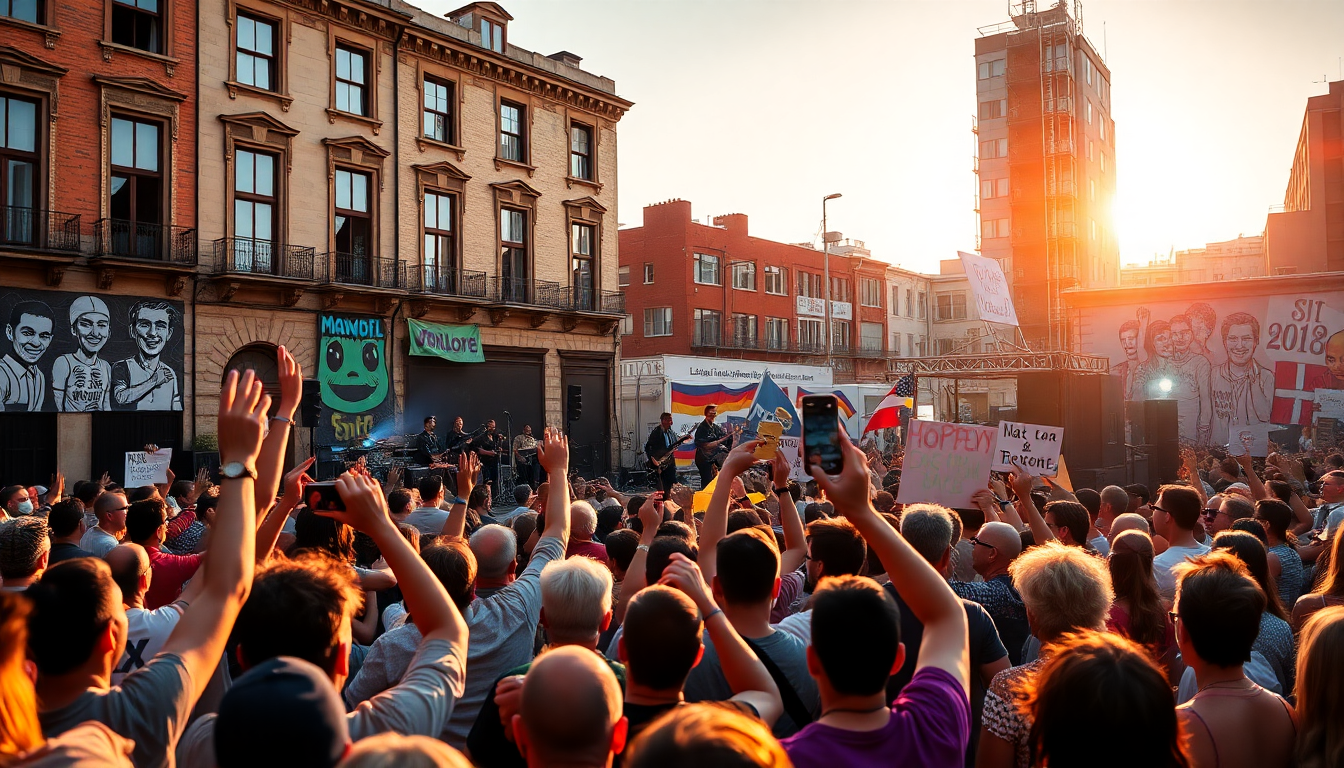Table of Contents
The relationship between pop culture and politics has always been a bit of a tangled web, but today, it feels like it’s under a magnifying glass. With artists holding considerable sway over public opinion, many are asking: should they dive into political issues or steer clear of them? Recent comments from well-known figures in the music world have reignited this debate, shining a spotlight on the friction between personal beliefs and what the public expects from them.
The Role of Artists in Society
Pop artists have often been seen as more than just entertainers; they’re cultural commentators, too. Their platforms can amplify voices, raise awareness, and inspire real change. But here’s the million-dollar question: should they wield their influence to advocate for political causes? Some say that maintaining an apolitical stance helps artists preserve their integrity and focus on their craft, while others argue that their visibility comes with a responsibility to tackle pressing societal issues.
Take singer Jade Thirlwall, for example. She recently called out Matty Healy, the frontman of The 1975, for wanting to sidestep political discussions in his music and public appearances. Thirlwall argued that this approach is much easier for those in privileged positions, suggesting that artists need to recognize their societal influence and engage with the significant issues of their time.
Healy’s remarks at the Glastonbury Festival, where he declared that his band wouldn’t infuse politics into their performances, only added fuel to this fiery debate. He expressed a wish for their legacy to revolve around love and friendship instead of political engagement. Yet, it’s worth noting that during the same festival, the band performed one of their most politically charged songs—a striking contradiction that highlights the complexity of their position.
The Impact of Political Statements
When artists do decide to step into the political arena, the reactions can be all over the map. For instance, Healy’s on-stage kiss with guitarist Ross MacDonald in Malaysia was a bold protest against the country’s anti-LGBTQ laws, leading to significant backlash and repercussions for the band. Such bold moves can rally supporters, but they can also alienate fans who prefer music as an escape rather than a platform for political debate.
Furthermore, this conversation about artists and politics raises intriguing questions about authenticity. Are they genuinely expressing their beliefs when they engage in these discussions, or are they just performing for the sake of publicity? This tension can create friction, as fans often have varied expectations of what their favorite artists should embody.
The current discourse also draws interesting parallels with artists’ historical roles during significant political movements. From the protest songs of the ’60s to today’s musicians tackling issues like climate change and social justice, the legacy of music as a catalyst for change is undeniable. Yet, the landscape has shifted dramatically, with social media amplifying every statement and action, raising the stakes higher than ever.
The Future of Political Engagement in Pop Culture
Looking ahead, one has to wonder: how will pop artists navigate this ever-evolving landscape? Will they fully embrace their roles as activists, or will they continue to keep politics at arm’s length? The answer likely hinges on their individual experiences, values, and the societal context in which they find themselves.
Ultimately, the intersection of pop culture and politics will likely remain a hotly debated topic. Artists must strive to find a balance that allows them to express their beliefs while also respecting the diverse perspectives of their audiences. Whether they choose to engage or lean towards a more neutral stance, the consequences of their decisions will echo far beyond the music itself, shaping the cultural narrative for generations to come.


